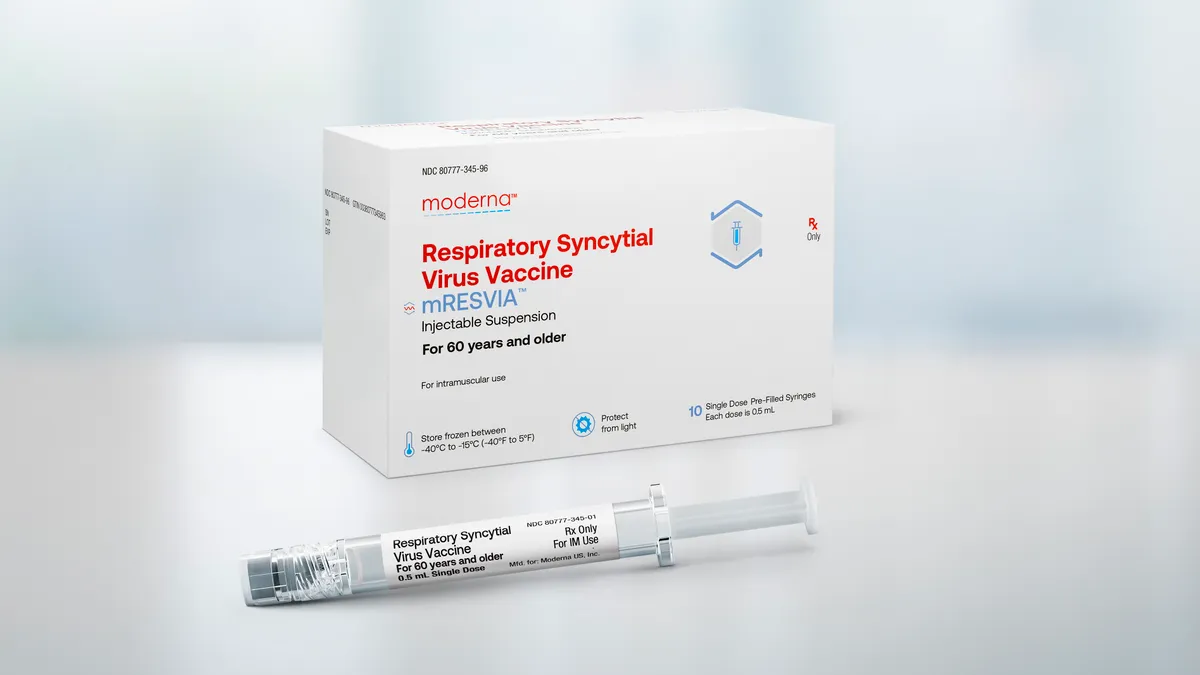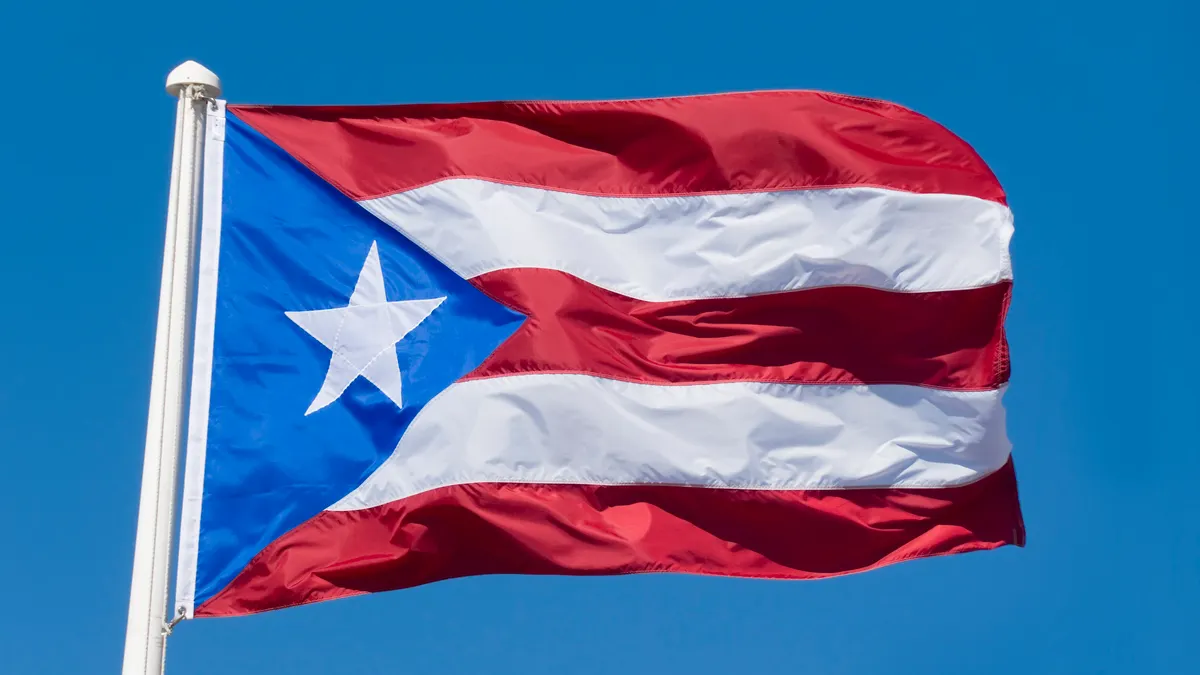The first three RSV vaccines to hit the market should’ve been home runs for Pfizer, GSK and Moderna, but new CDC guidelines may unexpectedly keep the ball in the park. Executives at the pharma giants are trying to look on the bright side.
The CDC’s Advisory Committee on Immunization Practices dropped a surprising vote in June that only recommended the respiratory syncytial virus shot for patients older than 75, or those between 60 and 75 who are at risk of severe disease. The vaccine developers originally planned for the recommendation to include all adults 60 and older, regardless of risk factor. The committee also postponed a vote for the shot in adults 50 to 59.
The decisions were a major blow to potential sales for all three companies. Rather than the previously forecast RSV vaccine market of $4.7 billion per year by 2030, the recommendations cut the estimate by 64% with only $1.7 billion in expected sales by the end of the decade, according to data from analytics firm Airfinity. That leaves room for only one of the shots — if any — to achieve blockbuster status by that time.
Still, based on the recommendation, about 40 million people in the U.S. are eligible for vaccination, Moderna CEO Stephane Bancel pointed out on the company’s second-quarter earnings call last week.
Here’s what executives at GSK, Pfizer and Moderna said about the new guidelines for RSV vaccines and how they plan to move forward in a diminished market.
“If you look at the 60 to 74 [age group] with ACIP, there’s no way you can escape that is a negative for the class — we have to be realistic there — but there is some silver lining to the cloud when we break that population down.”

Luke Miels
Chief commercial officer, GSK
GSK brought the first RSV vaccine, Arexvy, to the market in May last year and in 2024 has pulled in £244 million ($311 million), holding about two-thirds of the retail share, according to the company’s second-quarter earnings report. Since launch, about 8 million people aged 60 and older in the U.S. had received Arexvy out of about 85 million in that age group.
While the new recommendations might keep vaccination rates in the 60 to 74 age group lower than originally anticipated, which stood at about 13% last year, GSK chief commercial officer Luke Miels said the way uptake plays out in reality could remain minimally affected by the ACIP’s vote. For example, he noted that physicians might not withhold their own recommendations based on the ACIP’s decision.
Furthermore, Arexvy was the first RSV vaccine to gain FDA approval for the 50 to 59 age group, providing another opportunity for market share, GSK CEO Emma Walmsley said.
As for competition with the other two RSV shots on the market, Miels said Arexvy is “clearly the leader in the minds of physicians and patients,” adding that the clinical data is strongest among the three and “it’s the one you’d give your mum.”
“The ACIP guidance itself, with a recommendation for a single dose for all adults over 75 and those 60 to 74 that are at increased risk … is just clear and strengthens the directive for those who are eligible for a vaccine.”

Aamir Malik
Chief U.S. commercial officer, Pfizer
Pfizer’s Abrysvo came up just short of GSK’s shot in terms of sales with $201 million worldwide in the first half of the year. The company has requested approval for use in all adults younger than 59 in the U.S. and Europe, which would expand the drug’s reach even though older age groups are considered at more risk.
Pfizer’s shot is also unique in that it is approved for maternal vaccination, and chief U.S. commercial officer Aamir Malik said that this could be viewed as a simpler way to package vaccines for providers to inoculate different groups of people with one jab.
Malik pointed out that Abrysvo is only six months into the market and that the clarified recommendations from the ACIP will serve to demonstrate the medical need down the road, expanding the “opportunity set.”
Pfizer’s leadership is still bullish on Abrysvo’s potential after setting a peak sales estimate at more than $2 billion back in December 2022.
“If anything, things have become more promising since the time that we gave this $2 billion, because we were all surprised how much the medical community and the recommended authorities are putting emphasis on the disease,” said Pfizer CEO Albert Bourla.
“We continue to believe that as the public health story evolves, recommending bodies in CDC and ACIP will look at the waning efficacy, the potential to boost people again and hopefully provide additional public benefit, and that eventually, there will be recommendations for revaccination for those who are at highest risk of RSV.”

Dr. Stephen Hoge
President, Moderna
Among the three RSV vaccine makers, Moderna has the most riding on its version, called mResvia — the shot is only its second product on the market behind the COVID-19 vaccine, sales of which have fallen dramatically since the pandemic.
Moderna’s shot was the latest to gain approval just a few months ago in May. While CEO Stéphane Bancel acknowledged the market will likely be smaller this year than anticipated, he said the clarity provided by the guidelines could actually be a benefit for uptake among the included populations.
“Sometimes in vaccinations, you get a better reaction from the doctors and pharmacies and consumers with clear guidelines versus not as [many] guidelines with a larger population potential,” Bancel said. “It’s going to be interesting to see how the season plays out.”
Overall, with the respiratory season approaching, executives like Moderna’s Hoge believe a number of factors could impact the public’s reaction to the newly available RSV options, and the ACIP recommendation might not be as detrimental as it seems on paper.




















